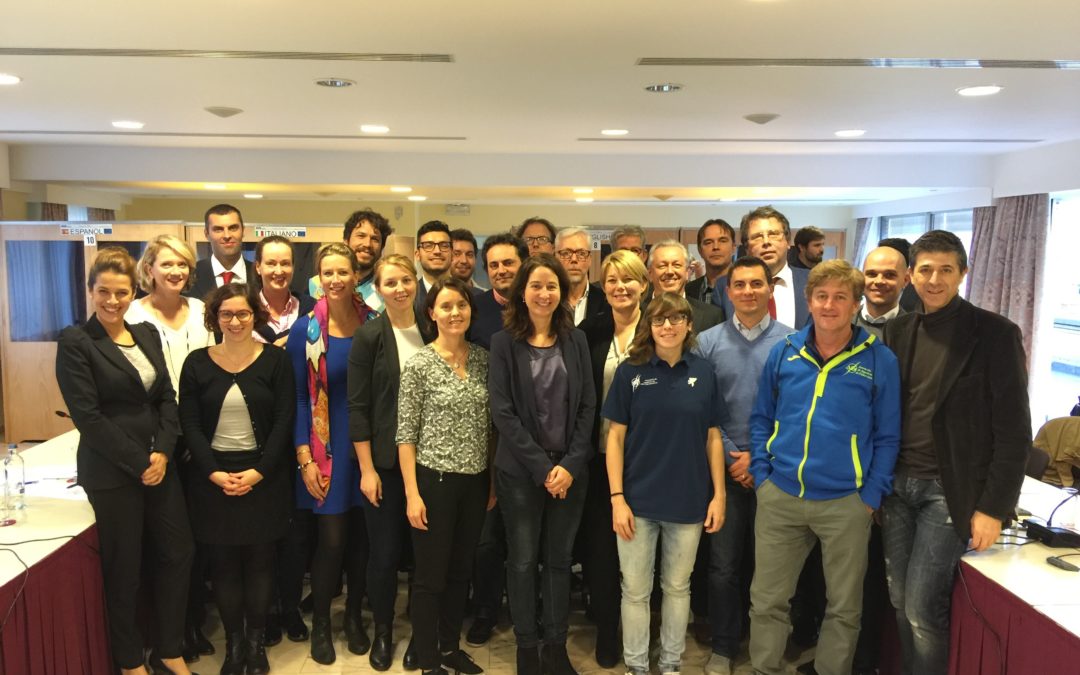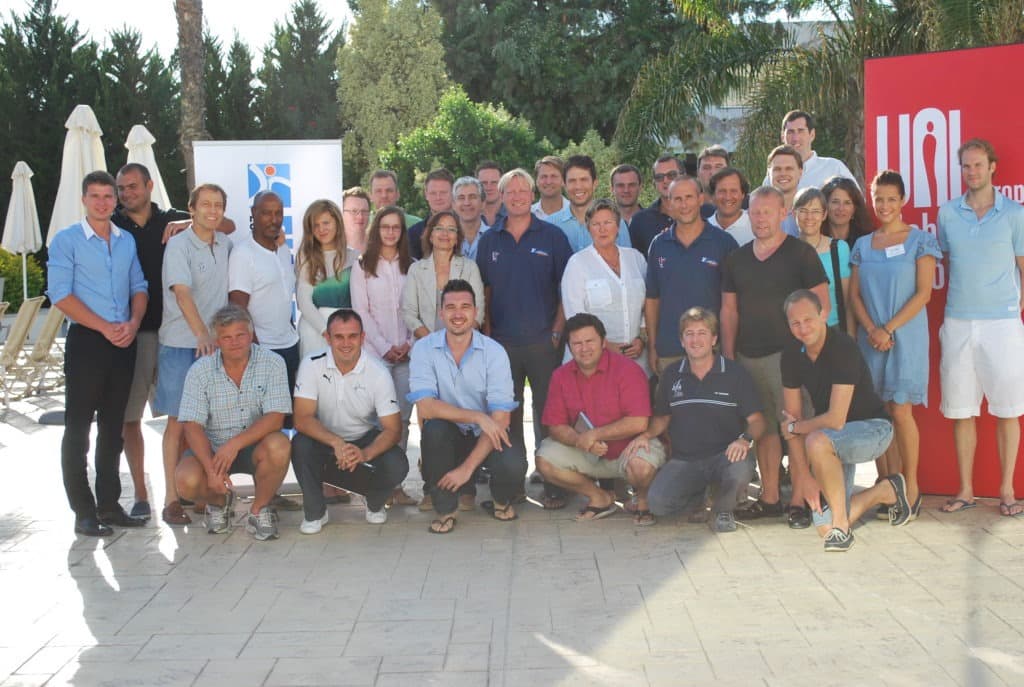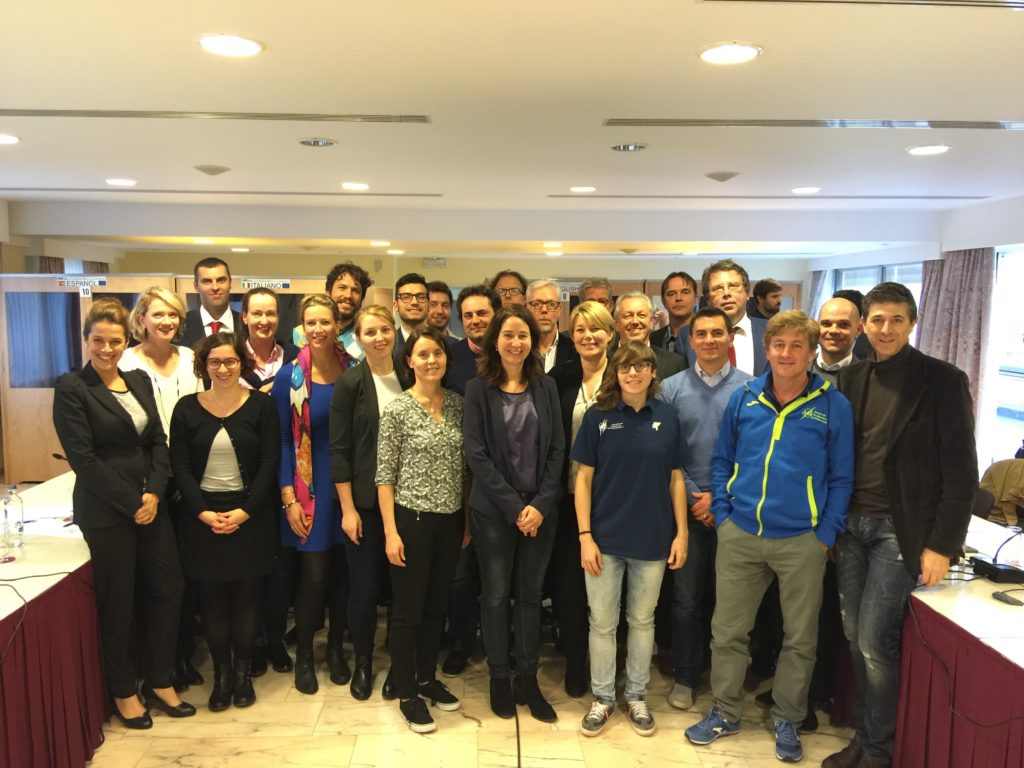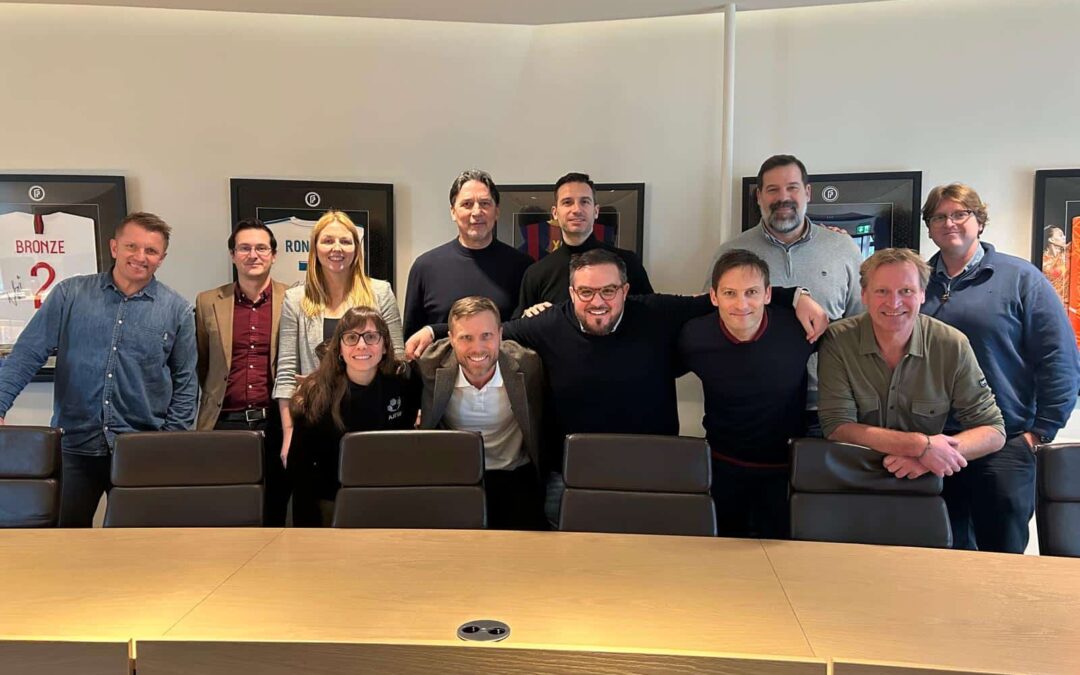
AGREE
Athletes for Good Governance and Rights in Europe (AGREE) project promotes the integrity and values in sport, focusing on improving good governance in sport. The aim of the project is to promote the sport governance by enhancing the relevant knowledge and developing competences related to collective bargaining.
The topic of collective bargaining was identified as one of the key areas where more work was needed during EAPA’s General Assembly 2023. Furthermore, the importance was earlier highlighted in the EU Athletes Common Position Paper (2022).
The project will start with research into collective bargaining in sport, as well as exploring the connections between Collective Bargaining Agreements, Good Governance and Athlete Rights. Based on this research, the CBA Report and the Final Report shall be published.
Thereafter 16 job shadowing visits will be organised. Through these visits, partners will be able to develop their knowledge and competencies related to collective bargaining. Furthermore, seven national events involving key stakeholders shall be organised.
Based on the results obtained from the research and the input and experiences from the visits and events, the project will place a focus on preparing European minimum standards and practical guidelines. This will lead to the publication of the following papers: the Minimum Standard European Contract, the Minimum Standard European CBA and the Practical Guide on Collective Bargaining Agreements.
Lastly, the project shall ensure that the activities and all the obtained results are widely shared via specific campaigns and social media.
The project consortium is composed of 10 partners: EAPA, the Edge Hill University as the research institution, and eight player associations:
ABP – Spanish Basketball Players Association
AJFSF – Spanish Women’s Futsal Players Association
HSF – Danish Handball Players Association
GIBA – Italian Basketball Players Association
GPA – Gaelic Player Association
JPY – The Football Players Association of Finland
NL Sporter – Dutch Athletes Association
Provale – French Rugby Player Association



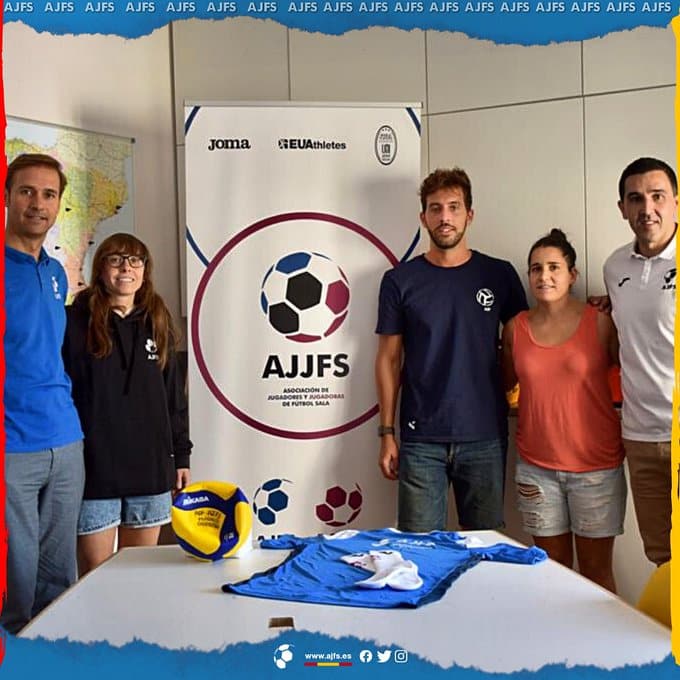
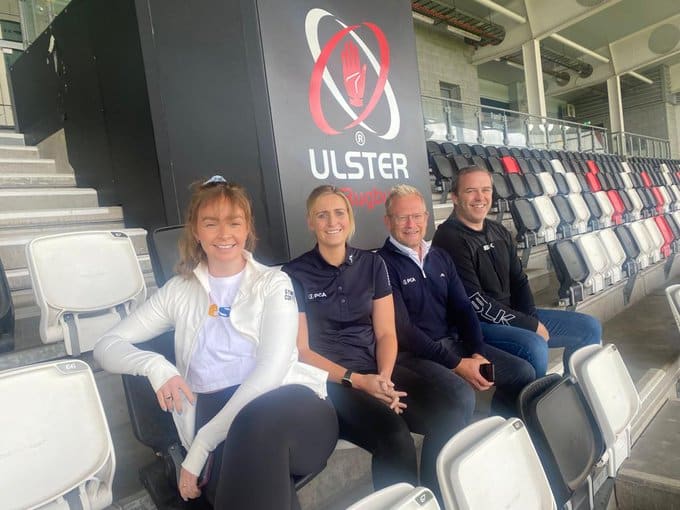

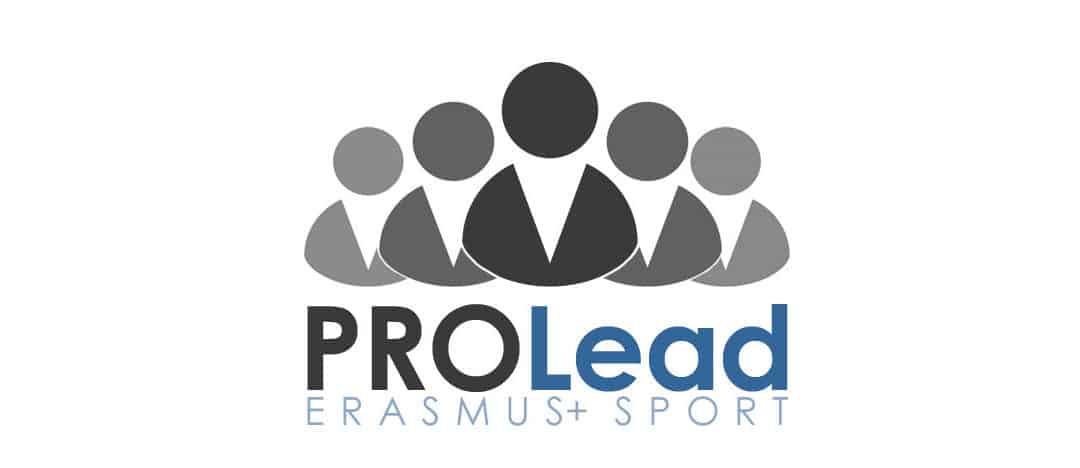
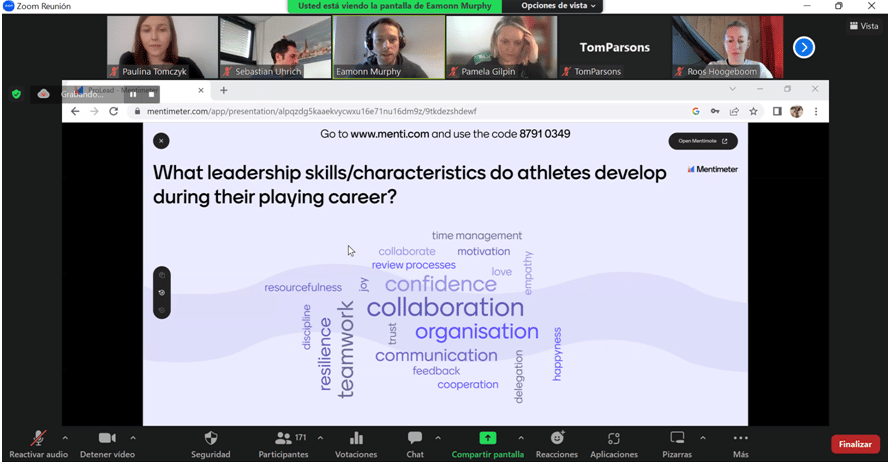
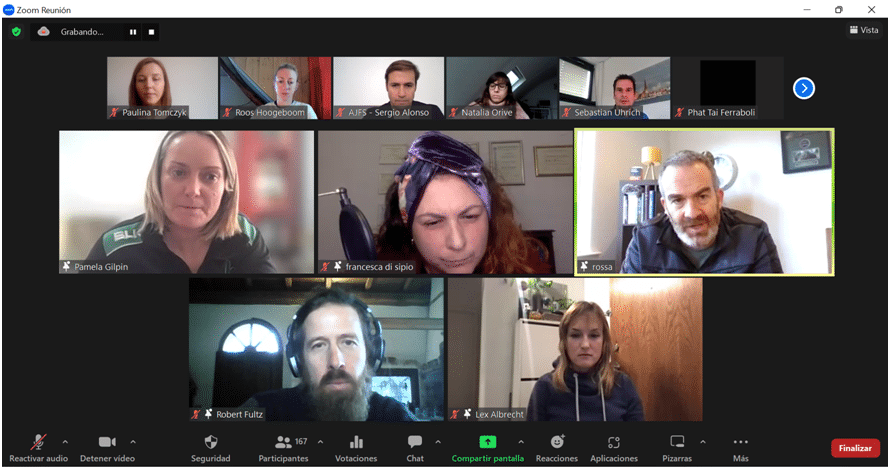
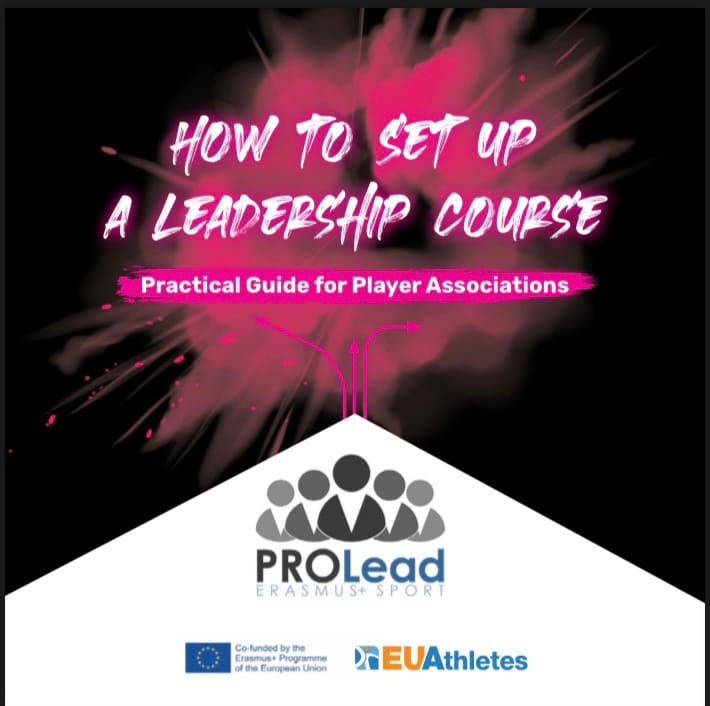

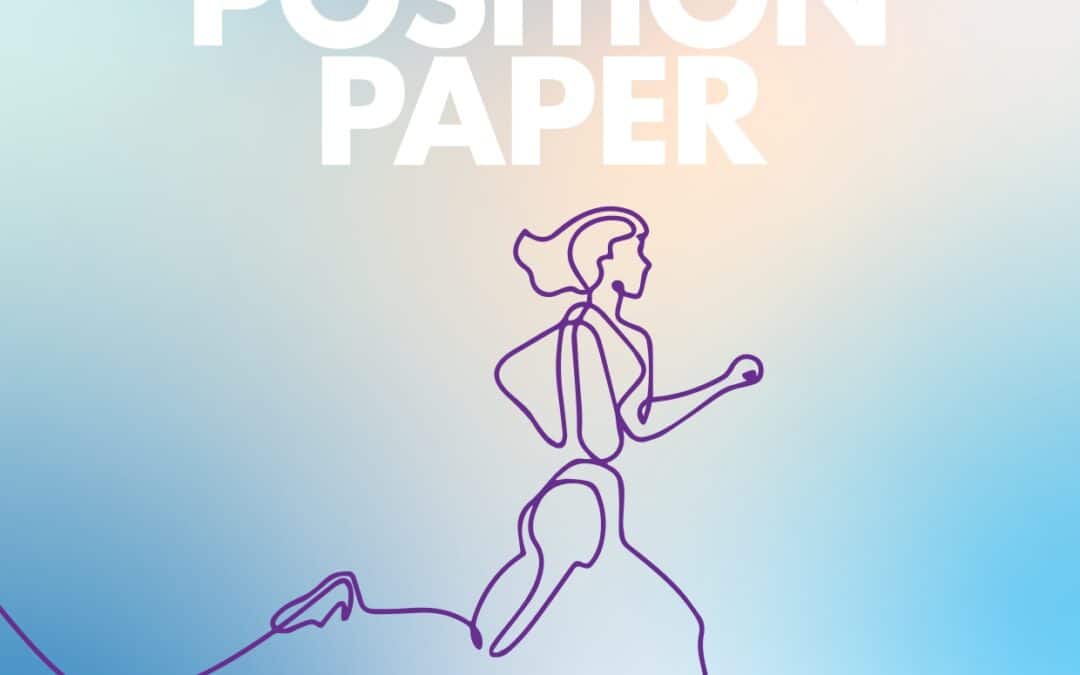
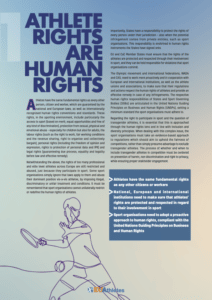 Athletes have the same fundamental rights as every other person, citizen and worker, which are guaranteed by the national and European laws, as well as internationally recognised human rights conventions and standards. These rights, in the sporting environment, include particularly the access to sport (based on merit, equal opportunities and free of any kind of discrimination), protection from sexual, physical and emotional abuse – especially for children but also for adults, the labour rights (such as the right to work, fair working conditions and the revenue sharing, right to organise and collectively bargain), personal rights (including the freedom of opinion and expression, rights to protection of personal data and IPR) and legal rights (guaranteeing due process, equality and legality before law and effective remedy).
Athletes have the same fundamental rights as every other person, citizen and worker, which are guaranteed by the national and European laws, as well as internationally recognised human rights conventions and standards. These rights, in the sporting environment, include particularly the access to sport (based on merit, equal opportunities and free of any kind of discrimination), protection from sexual, physical and emotional abuse – especially for children but also for adults, the labour rights (such as the right to work, fair working conditions and the revenue sharing, right to organise and collectively bargain), personal rights (including the freedom of opinion and expression, rights to protection of personal data and IPR) and legal rights (guaranteeing due process, equality and legality before law and effective remedy).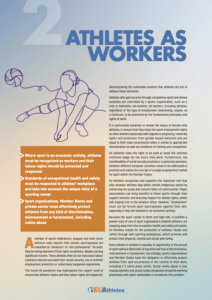 A number of sports federations, leagues and even some national laws require that certain sportspeople are classified as “amateurs” or “non-professional”. As such, they are being deprived of their rights as workers, despite earning significant income. These athletes often do not have basic labour contracts and are excluded from social security, not to mention employment protection or collectively bargained regulations.
A number of sports federations, leagues and even some national laws require that certain sportspeople are classified as “amateurs” or “non-professional”. As such, they are being deprived of their rights as workers, despite earning significant income. These athletes often do not have basic labour contracts and are excluded from social security, not to mention employment protection or collectively bargained regulations.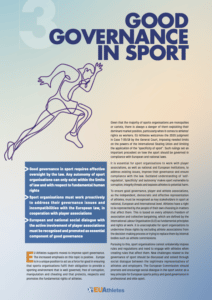 The increased emphasis on good governance in sport is positive and we support moves to improve sports governance. Europe is in a unique position to act as a force for good in ensuring that sports organisations fulfil their obligation to provide a sporting environment that is well governed, free of corruption, manipulation and cheating and that protects, respects and promotes the fundamental rights of athletes.
The increased emphasis on good governance in sport is positive and we support moves to improve sports governance. Europe is in a unique position to act as a force for good in ensuring that sports organisations fulfil their obligation to provide a sporting environment that is well governed, free of corruption, manipulation and cheating and that protects, respects and promotes the fundamental rights of athletes.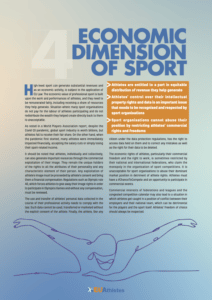 High-level sport can generate substantial revenues and as an economic activity, is subject to the application of EU Law. The economic value of professional sport is built upon the work and performances of athletes, and they need to be remunerated fairly, including receiving a share of resources they help generate. Situation where many sport organisations do not pay for the labour of athletes participating and do not redistribute the wealth they helped create directly back to them is unacceptable.
High-level sport can generate substantial revenues and as an economic activity, is subject to the application of EU Law. The economic value of professional sport is built upon the work and performances of athletes, and they need to be remunerated fairly, including receiving a share of resources they help generate. Situation where many sport organisations do not pay for the labour of athletes participating and do not redistribute the wealth they helped create directly back to them is unacceptable.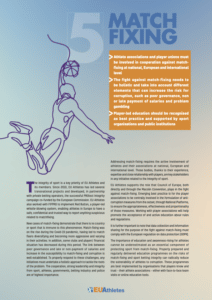 The integrity of sport is a key priority of EU Athletes and its members. Since 2010, EU Athletes has led several transnational projects and developed, in partnership with private betting operators, the successful PROtect Integrity campaign co-funded by the EU. EU Athletes also worked with FIFPRO to implement Red Button, a player-led whistle-blowing system, enabling athletes in Europe to have a safe, confidential and trusted way to report anything suspicious.
The integrity of sport is a key priority of EU Athletes and its members. Since 2010, EU Athletes has led several transnational projects and developed, in partnership with private betting operators, the successful PROtect Integrity campaign co-funded by the EU. EU Athletes also worked with FIFPRO to implement Red Button, a player-led whistle-blowing system, enabling athletes in Europe to have a safe, confidential and trusted way to report anything suspicious.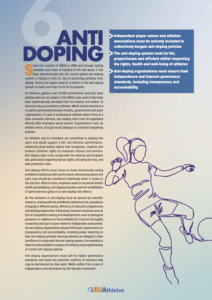 Since the creation of WADA in 1999 and through doping scandals and cases of injustice in the last years, it has been demonstrated that the current global anti-doping system is failing to fulfil its role of protecting athletes from doping. There is an urgent need for a reform of the anti-doping system to make sure that it is fit for its purpose.
Since the creation of WADA in 1999 and through doping scandals and cases of injustice in the last years, it has been demonstrated that the current global anti-doping system is failing to fulfil its role of protecting athletes from doping. There is an urgent need for a reform of the anti-doping system to make sure that it is fit for its purpose.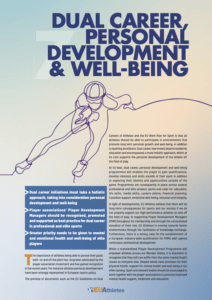 The importance of athletes being able to pursue and reach their goals on and off the pitch alike, long advocated by the athlete associations, has gained recognition in the recent years. Accordingly, an athlete’s personal development, well-being and dual career opportunities have been strongly represented in European sports policy.
The importance of athletes being able to pursue and reach their goals on and off the pitch alike, long advocated by the athlete associations, has gained recognition in the recent years. Accordingly, an athlete’s personal development, well-being and dual career opportunities have been strongly represented in European sports policy.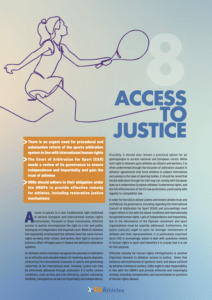 Access to justice is a core fundamental right enshrined in various European and international human rights instruments. Pursuant to this provision, effective access to justice encompasses the right to a fair and public hearing by an independent and impartial court. While EU Athletes has repeatedly emphasised that athletes have the same human rights as every other person, citizen, and worker, their right to access to justice is often infringed upon in flawed and deficient arbitration proceedings.
Access to justice is a core fundamental right enshrined in various European and international human rights instruments. Pursuant to this provision, effective access to justice encompasses the right to a fair and public hearing by an independent and impartial court. While EU Athletes has repeatedly emphasised that athletes have the same human rights as every other person, citizen, and worker, their right to access to justice is often infringed upon in flawed and deficient arbitration proceedings.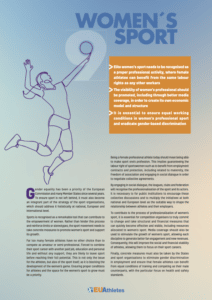 Gender equality has been a priority of the European Commission and many Member States since several years. To ensure sport is not left behind, it must also become an integrant part of the strategy of the sport organisations, which should address it holistically at national, European and international level.
Gender equality has been a priority of the European Commission and many Member States since several years. To ensure sport is not left behind, it must also become an integrant part of the strategy of the sport organisations, which should address it holistically at national, European and international level.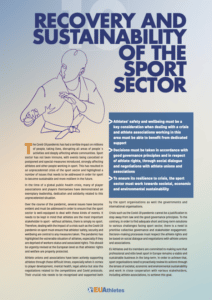 The Covid-19 pandemic has had a terrible impact on millions of people, taking lives, disrupting all areas of people´s activities and deeply affecting whole communities. Sport sector has not been immune, with events being cancelled or postponed and special measures introduced, strongly affecting athletes and other people working in sport. This has resulted in an unprecedented crisis of the sport sector and highlighted a number of issues that needs to be addressed in order for sport to become sustainable and more resilient in the future.
The Covid-19 pandemic has had a terrible impact on millions of people, taking lives, disrupting all areas of people´s activities and deeply affecting whole communities. Sport sector has not been immune, with events being cancelled or postponed and special measures introduced, strongly affecting athletes and other people working in sport. This has resulted in an unprecedented crisis of the sport sector and highlighted a number of issues that needs to be addressed in order for sport to become sustainable and more resilient in the future.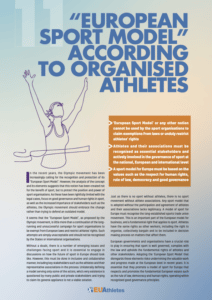 In the recent years, the Olympic movement has been increasingly calling for the recognition and protection of its “European Sport Model”. However, the analysis of the concept and its elements suggests that this notion has been created not to benefit sport, but to protect the position and power of sport organisations. As these have been rightfully limited with the legal cases, focus on good governance and human rights in sport, as well as the increased importance of stakeholders such as the athletes, the Olympic movement should embrace the change rather than trying to defend an outdated model.
In the recent years, the Olympic movement has been increasingly calling for the recognition and protection of its “European Sport Model”. However, the analysis of the concept and its elements suggests that this notion has been created not to benefit sport, but to protect the position and power of sport organisations. As these have been rightfully limited with the legal cases, focus on good governance and human rights in sport, as well as the increased importance of stakeholders such as the athletes, the Olympic movement should embrace the change rather than trying to defend an outdated model.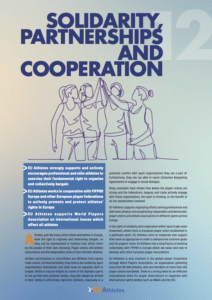 Athletes, just like every other citizen and worker in Europe, have the right to organise and collectively bargain, so they can be represented in matters that affect them by the people of their own choosing. Player unions and athlete associations are the independent voice of their member athletes.
Athletes, just like every other citizen and worker in Europe, have the right to organise and collectively bargain, so they can be represented in matters that affect them by the people of their own choosing. Player unions and athlete associations are the independent voice of their member athletes.